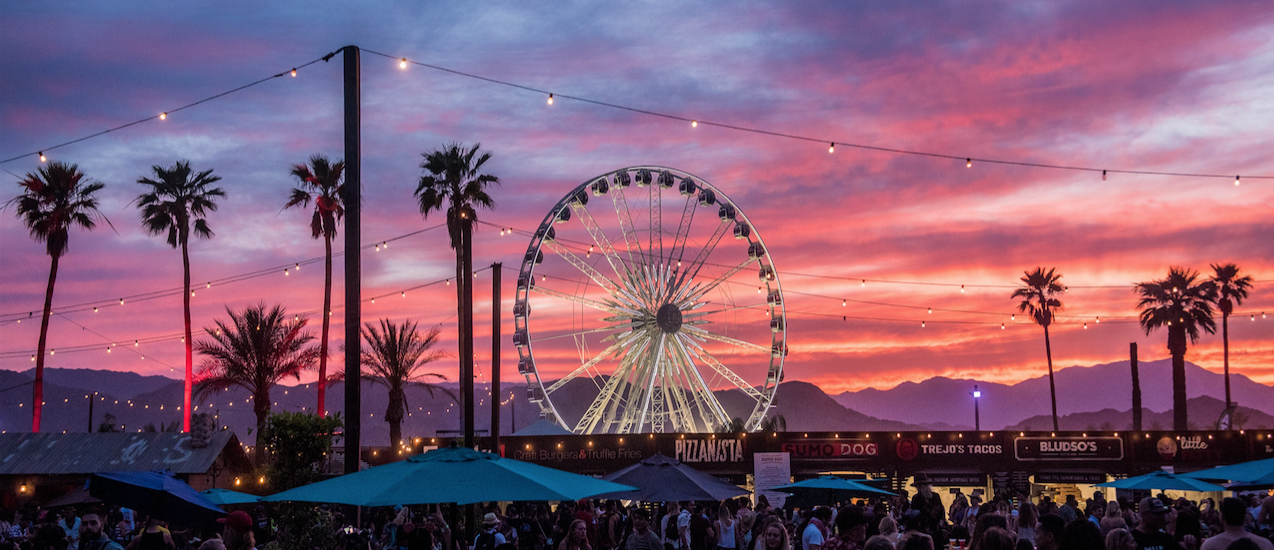Review: Coachella is a festival meant to be seen, not heard
For so many years, music festivals have been the cornerstone of American youth culture. The famed festivals in U.S. history: Woodstock ’69, Monterey Pop Festival, Newport Folk Festival, all have been considered symbols of pure, unadulterated escapism.
As it stands today, there are dozens of major music festivals that run annually across the country, each with their own unique memories, associations and themes.
Festivals like Michigan’s Electric Forest, South Florida’s Okeechobee, New Orleans’ Voodoo or New York’s Governor’s Ball illustrate the inexplicable satisfaction of sharing a musical celebration with thousands of close strangers.
Naturally, it is the dream of many to attend, by today’s standards, the true Mecca of them all: Indio’s Coachella Valley Music and Arts Festival. And, truthfully, for fans of music festivals, their bubble will be obliterated.
Coachella was the antithesis of just about everything that makes music festivals special. The community, the unspoken camaraderie between the artist and the patrons, the artist’s visible sense of accomplishment playing in front of thousands of people whose lives they’d changed with their music; none of that was present in the desert this past weekend at Weekend 2 of the festival.
For many attendees, Coachella seemed to hold little value outside of the bragging rights and the opportunity to wear outfits that they could never wear anywhere else. Coachella is a place to be seen; the music comes second.
Thus, one’s sympathy should lie with the 150+ artists who tirelessly prepared for a career-defining Coachella performance, only to find out that they had lost the crowd before their show even started.
To be fair, there were a few, albeit obvious, sets where the crowd properly engaged with the performer. Beyoncé played perhaps the two most anticipated concerts of the year on back-to-back weekends, but BeyHive Twitter quickly attested that the thousands in attendance could have been far more grateful for the chance to witness such a milestone in music. She was, after all, the first woman of color to headline the heralded festival since its inception in 1999.
Yet, Beyoncé’s larger-than-Coachella presence still led to some unintended consequences for performers earlier in the afternoon. Nile Rodgers, a legend in his own right, took the main stage with Chic more than seven hours before she was scheduled to perform. Still, the disco and funk rock legends couldn’t manage to get the swaths of Beyoncé campers on their feet despite the overwhelming talent they showcased.
BROCKHAMPTON’s Coachella debut was especially transformative, as patrons had been acutely aware of their talents, but they were not prepared for the youthful explosion of personality and professionalism on display. The exact choreography, unique personalities and impeccable chemistry between each member allowed everyone in the crowd to understand how special this group could be.
Never before had many in the crowd been so naturally drawn to a group of people their age. They understood how millennials felt, and they expressed it through their music better than most artists their age — or those far beyond their years — ever could. The wide emotive range of aggression, swagger and grace within their music exemplifies their refusal to be pigeon-holed. However, BROCKHAMPTON sensed that the sheen quickly wore on the jaded crowd five songs into the set, and their composed professionalism turned to inspired rage as they went feral on their most aggressive tracks like “HEAT,” “STAR” and “QUEER.”
Additionally, hip-hop artists Vince Staples and Flatbush Zombies delivered high-energy, jaw-dropping performances in front of crowds where the vast majority of attendees refused to match the moxie of the performers. Both artists were visibly upset, and audibly in the case of Flatbush Zombies, as they left their respective stages.
As far as musical purpose goes, Coachella is devoid of all integrity. It represents the hyper-capitalist approach to escapist hedonism that ruins the essence of the music festival with their primary focus lying in exclusivity. Music festivals are about community, bliss and, most importantly, the live music experience. While Coachella obviously believes that these can be achieved through the principles of supply and demand, a change in culture needs to happen for the festival to return to its former glory.

